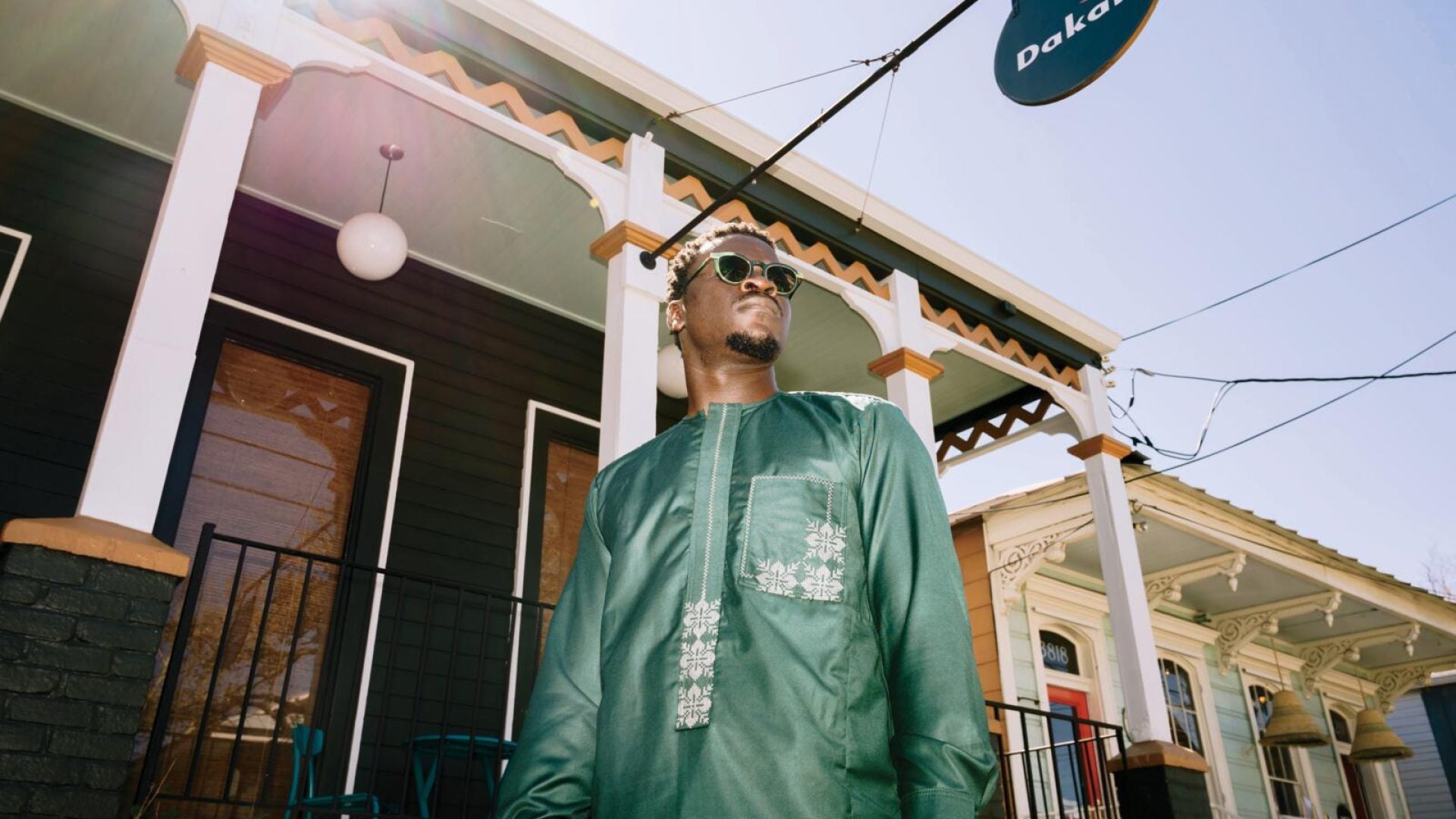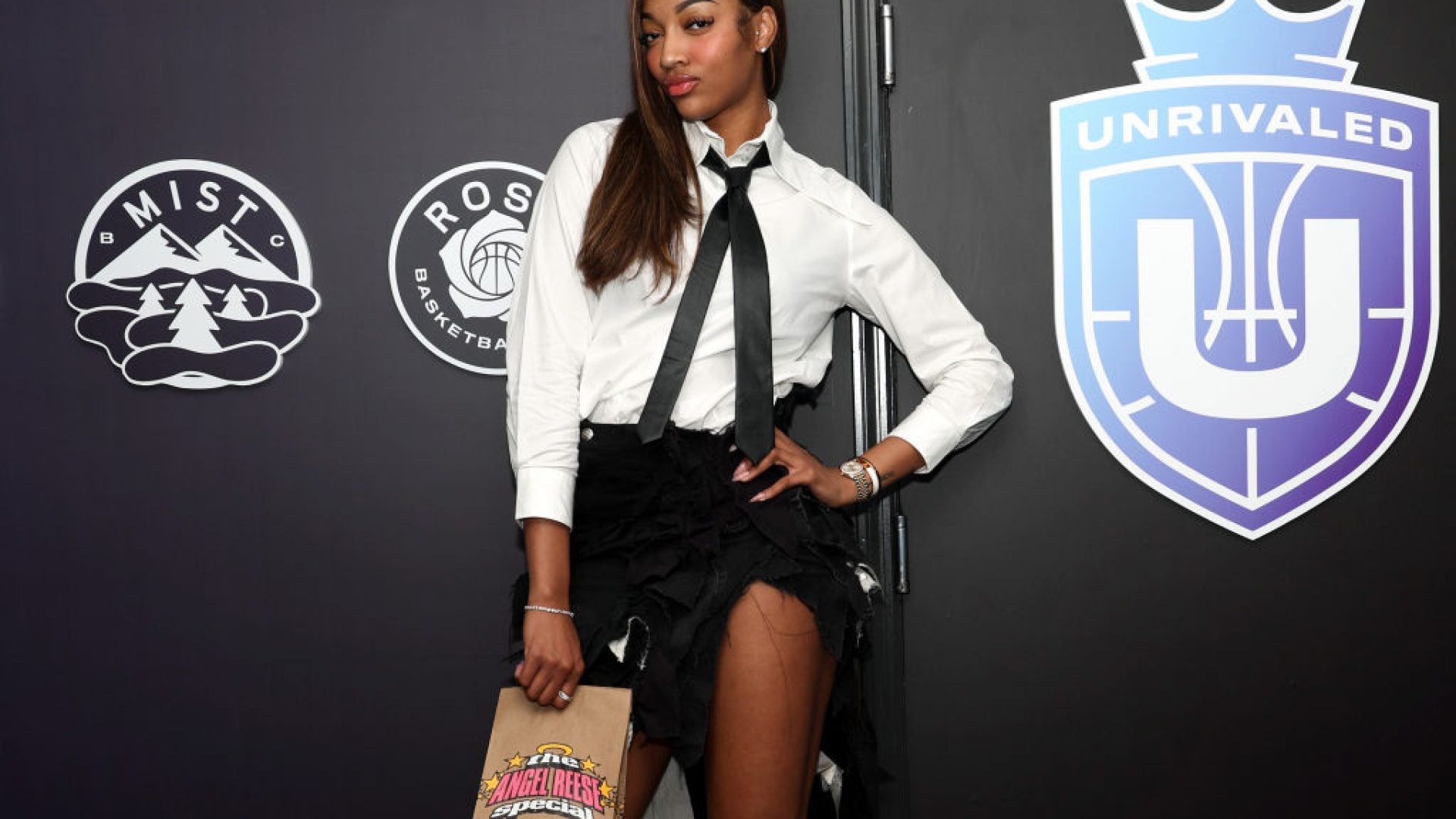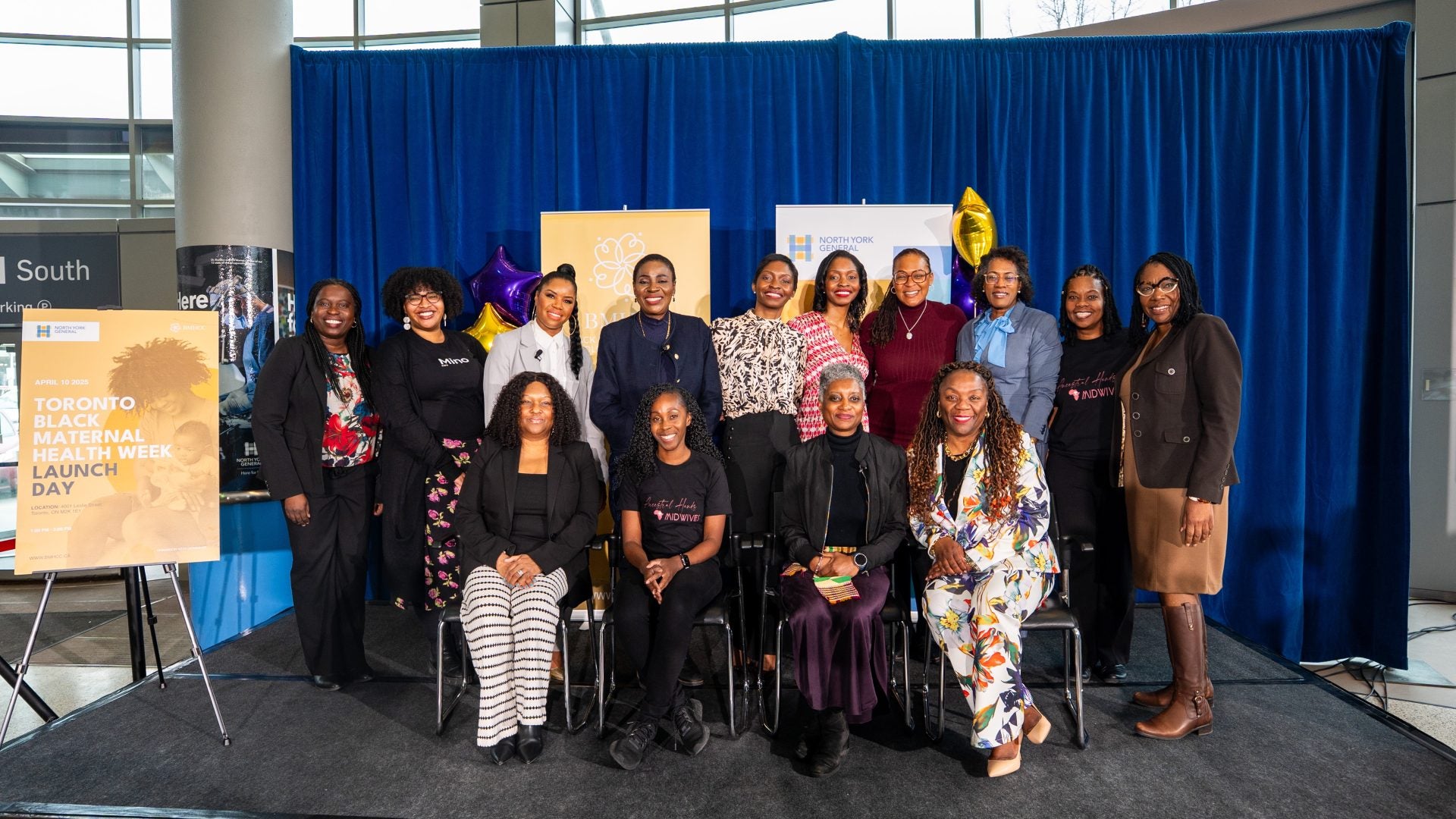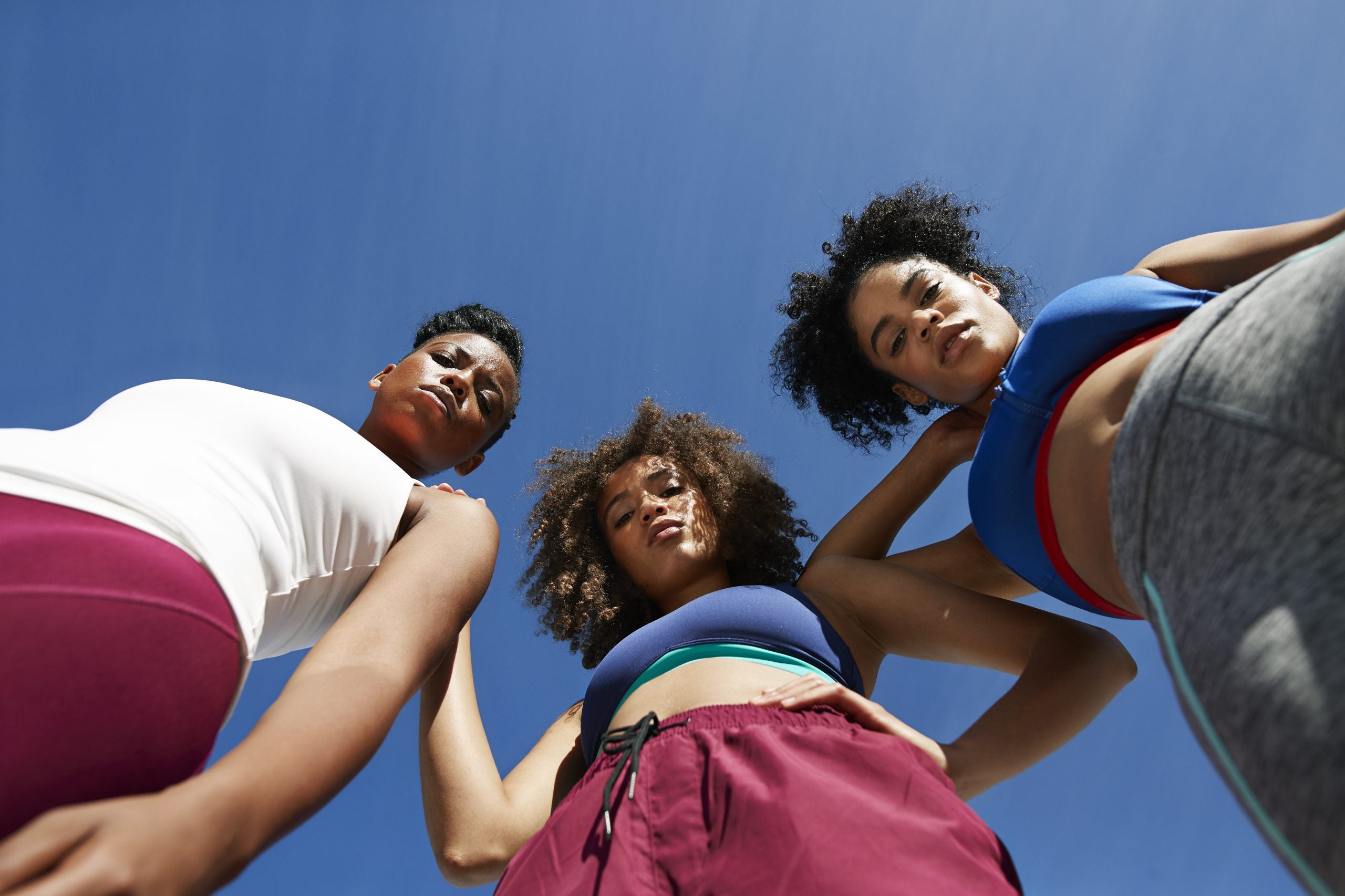
Rae Lewis-Thornton is one seriously unapologetic and fearless Black woman. Twenty-six years ago, she made history on the cover of ESSENCE, when she announced to the world that she had contracted HIV. The cover line simply read: “I’m young, I’m educated, I’m drug-free, and I’m dying of AIDS.” She was just 34 years old at the time and a sexual abuse survivor. Her family had heard the news just two weeks before the issue hit stands. That was the day Lewis-Thornton, a survivor, educator and activist, rose to national acclaim and began changing young women’s lives by telling her own truth, with so many of them reaching out at the time (and since then) to thank her for saving their lives and forcing them to rethink the way they view safe sex.
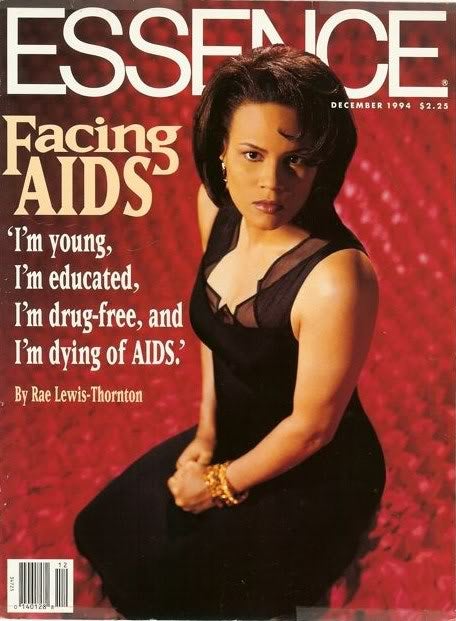
Lewis-Thornton, has now been living with HIV for 36 years and AIDS for 26—something that seemed an impossible feat at the time of her diagnosis. Lewis-Thornton, a thriving and influential voice within our community, has won an Emmy award, written three books and become a minister since coming out to the world with her diagnosis. Known as the Diva Living With AIDS, she still travels the globe lecturing on the realities of life with HIV and AIDS, and her voice has only gotten stronger over the years. While putting the finishing touches on her memoir, expected to be released later this year, Lewis-Thornton paused to sit down with ESSENCE for an intimate and heartfelt discussion on what she wants young Black women to know about what it truly means to be safe and love themselves and how the HIV/AIDS landscape has changed.
Today is National Women and Girls HIV/AIDS Awareness Day, and this is what’s on Lewis-Thornton’s heart to share with you.
ESSENCE: What have you learned about womanhood throughout your journey that you want to share with young Black women?
THORNTON: That everything begins with both self-love and self-awareness. Self-love is not always easy, especially if you have not lived in an environment where you have been loved—you’re basically trying to figure it all out. When you live in an abnormal situation, like how I’ve lived, for example, as an adult survivor of childhood sexual abuse, physical abuse, and emotional abuse and being called out of my name in my home—I had no examples of love. Without any real examples of love, you can’t even begin to embrace it for yourself. You can want it for yourself, but you don’t really know what it is, so it’s difficult to do something that you don’t really understand.
And what about the self-awareness?
The self-awareness was the thing that got me closer and closer to self-love. There is something within our spirit, this intuitive knowing of what feels right and we need to focus in on that and what our gut is telling us about people and situations that we’re in. One of the things that I’ve said often in my memoir is that I kept asking myself, “what was wrong with me?” I had this awareness that something was off. I just didn’t have the tools at the time to figure out how to reshape my paradigm. But today we’re in the 21st century, and there are so many tools for young girls, there are books on what it means to be a woman, feminism and womanism and there are books on trauma and how it impacts your life. I think that girls have to be self-aware and from that self-awareness they can begin to develop and get to that place of healthy. We say, “Oh, if you love yourself, you won’t put yourself at risk for HIV.” I mean, it’s a cute cliché, but what does it really mean?
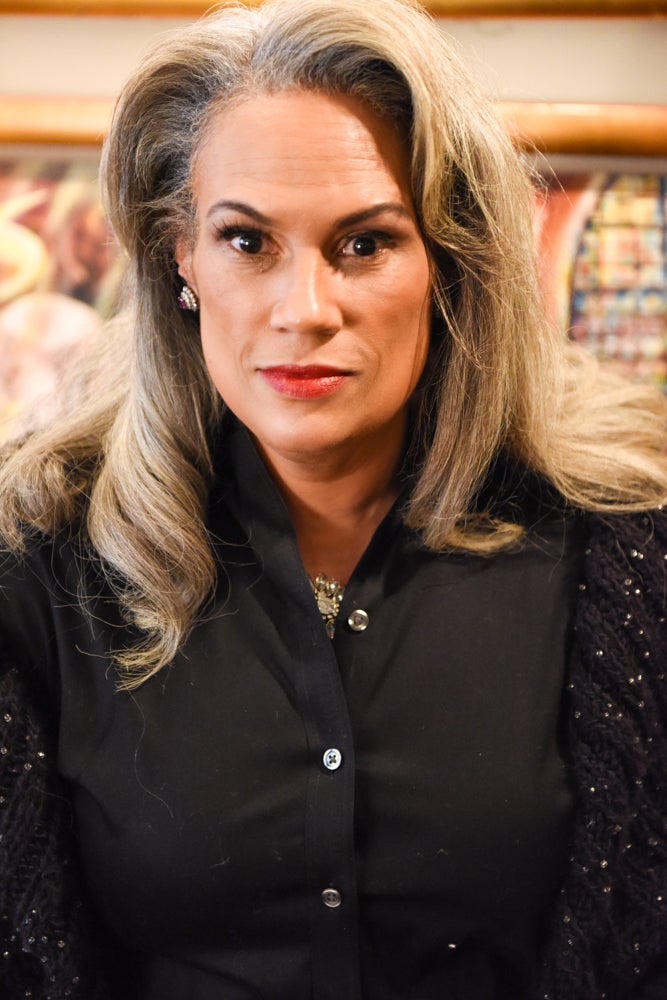
What types of paradigms must we re-shape?
I think that, as young girls, we struggle with the paradigms that have been created for women—that our lives are not fulfilled if we don’t have a partner, if we don’t have a husband. And I think that that paradigm kind of floats. No matter how much education a girl or young woman has, the topic at Thanksgiving is, “Girl, when you going to get married?” And so, with this drive, this push for marriage, also comes this push for dating, and with the push for dating and in this cycle of looking for mister right or that person to marry, comes sex. I think that we need to begin to shift some of this discussion about marriage to just being okay with who you are with yourself. We spent all of this time trying to get girls to get married when we really just need them to spend time with themselves, get to know them, what they like, who they are. Because the reality is this: Once you start having sex, the more sexual partners you accumulate, the more at risk you become for sexually transmitted diseases. That’s just it. And none of it really has to do with one-night stands or promiscuity or all these horrible things we put on our young women. It really has to do with what society has taught us to do—get married.
How so?
Okay. We meet a guy, and we think he’s wonderful. If you start dating at 18, you meet a guy, and you think he’s wonderful, then you decide to have sex with him. The way I put it is, the bread molds. You think he’s the best thing since sliced bread and the bread molds and then what do we do with all the bread? We throw it away, we cry about it, or we talk about it with our best girlfriends and we try to figure out how we ever even hooked up with him in the first place. And then we get over that at some point. And some girls never get over it. But whether you get over it, or you don’t, you go to the next guy that you’re hoping to be Mr. Right.
Yes, the search continues.
And, again, you have a relationship, you have sex and the relationship ends and you can’t take back the sex. So, the cycle really just continues to go and go until you get married. And so, let’s take a hypothetical age. You’re 18 and you started having sex and you don’t get married until you’re 28. That’s 10 years of dating. That’s 10 years of having sex in and out of relationship. Dating is never dating for dating’s sake. Dating is dating to find a mate, someone that you can live your life with and have children with too. And that becomes the end result that we continue to go and go and go until we get married. Now, with women getting married later, you’re 38. That’s a lot of dating. A lot of sex. Safety is important.
You’ve always kept it real about the fact that women do, and will, have sex when dating. Which is completely normal.
Yes, and I want to be really clear here: I think that young women should date and have as much sex as they think they can. They should have it on the ceilings. They should have it on the roof. I just want them to be safe, and safe means using a condom. There are still other ways you can protect yourself, like Prep, the one pill a day that you can take to prevent HIV. But I just personally like the idea of using condoms, getting tested, knowing and having an understanding of who your partner is, and getting tested with your partner. There are a lot of dynamics that come to this. What I’m saying is, we date, we meet guys, we’re in and out of relationships. We do what is normal and what is normal can sometimes lead you to HIV. And part of [that safety] has to be that I love myself more than I love the idea of having a man in my life. Because that becomes the paradigm. And I remember once my therapist said to me, “So what do you say to young people when you speak?” I said, “I tell them I never had one-night stands, never had sex on the first date, and only had sex with men I loved.” And then he said, “Well, that’s not true.” And I was like, “What do you mean that’s not true?” And he said, “Yes, you had sex with men you loved, but you also had sex with men you wanted to love you.” That’s a whole ‘nother element that flows. If we’ve been dating a month and we’ve been dating two months, if we do that thing then he’ll love me even more. He’ll know how great I am in bed. Which was part of my shit, and it really has nothing to do with love. A man does not even have to like you to have sex with you, more or less love you. And that is a reality. And so we have to begin to separate this love, which is one thing. Dating and relationships and marriage are another. We lump it all together. Well, you need to regroup on that. As an act of self-love, you have to be intentional about the way you handle sex and relationships and you have to be safe. You shouldn’t be driven by needing the man in the relationship, you can essentially have self-love in a healthy relationship by being safe and being intentional. You can have both.
The medical care options for people with your diagnosis have come very far and people, like you, are living longer than ever before. What do you want women to know about what it means to live with HIV/AIDs today?
We’re now almost 40 years into this pandemic. We didn’t know what HIV/AIDS would look like in a person that lived 30 years with it because we didn’t have those markers in 1981 when HIV first came along. Now we have those markers and we know that living with HIV does something to the body. We’re always creating inflammation, because even with an undetectable viral load, HIV is still there, and our immune system is fighting that virus inside of our body and that battle against HIV creates inflammation. We know that inflammation also adds to heart disease and a whole other host of issues that people who are aging, even without HIV, have. Women who are aging with HIV, we have more heart disease. We have a larger cohort of morbidities than our counterparts our age that didn’t have HIV. Women with HIV have more difficult hot flashes. We have more difficult menopause. While you can live long with HIV, and we can keep you here, it’s a lifetime commitment of healthcare. You are living with a chronic illness for the rest of your life. And the optimal goal is to never have you have to live this journey ever, and we don’t get that. We’re so busy trying to make HIV okay that we’re not really addressing all the issues that are still attached to it. It is expensive, and it’s not just the cost of the medicine, but it’s also the pill load. The longer you live with HIV, your pill load may continue to increase. Right now, my HIV medicine alone is about $50,000 a year.
